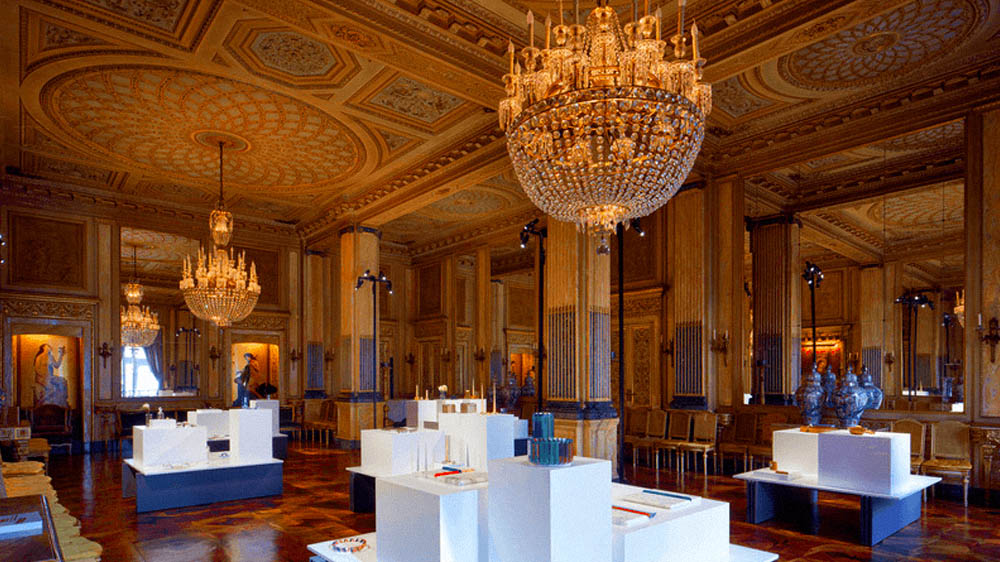MasterCard has combined virtual reality with its Masterpass digital payment service to unlock new opportunities for brands to sell products directly to consumers.
First up in exploring this opportunity is Swarovski, which worked with YouVisit to create a VR shopping app for the Atelier Swarovski home décor line. The app, which launches in October, immerses consumers in a decorated home where they can browse a collection of crystal home accessories designed in collaboration with renowned architects and designers, and purchase the pieces with Masterpass.
Abi Mandelbaum, CEO and co-founder of YouVisit, told AListDaily that VR has the potential to offer an entirely new shopping experience for consumers.
“The benefits are easy to see for a brand like Swarovski, which offers high-end, limited-edition pieces that might not be available everywhere,” Mandelbaum said. “But as VR becomes more and more common in consumer homes, experiences like this will enable people to shop with more confidence—to feel like they’re really seeing the products they consider purchasing and can buy with more confidence.”
Mandelbaum added that the key for brands to connect with consumers in VR is interaction.
“The more you give someone to do inside a VR experience, the more fulfilling they’ll find it and the longer they’ll stay,” Mandelbaum explained. “It’s important to offer many opportunities to try things, click on information and access additional media.”
The app lets users walk through the five areas of the virtual home to browse designs by artists such as Norwegian-born Kim Thome, Amsterdam-based Aldo Bakker, Spanish designer Tomás Alonso and the architect Zaha Hadid.
Once in the VR environment, they’re able to learn about the stories behind each piece, read through descriptions, see the pricing and in some cases, watch videos about its craftsmanship.
Masterpass enables consumers to check out from within the VR experience without having to add payment details.
Kiki Del Valle, senior vice president of commerce for Every Device at MasterCard, told AListDaily that the world of e-commerce is undergoing radical shifts.
“Consumers are leading an increasingly connected, digital lifestyle—where the digital and physical blend seamlessly together,” Del Valle explained. “MasterCard is always looking to make shopping a seamless experience for consumers—whether it is online or in physical stores.”
While VR is still in its early days of consumer adoption, Del Valle said early adopters tend to be pretty tech savvy, which aligns well with the digital leanings of many Masterpass users.
Masterpass is MasterCard’s digital acceptance for roughly 340,000 merchants to enable online and in-app purchases at more than six million merchant locations in approximately 96 countries that accept contactless payments.
“Our goal is not to tell consumers what technology they should use while shopping, but to provide consumers with the choice to shop when they want, how they want in a manner that is as seamless as possible,” Del Valle explained. “We also want to provide our merchants with the ability to accept payments across all technology platforms possible—in-store, in-app, online and in AR and VR.”
With VR, Del Valle believes merchants and brands can shape the story and experience of consumers as they browse, shop and purchase.
“We are looking forward to exploring the limits of VR commerce,” Del Valle added. “Automotive and travel are verticals that seem to lend themselves well to the capabilities of VR.”
Mandelbaum said VR allows car makers to go beyond the current online and mobile offerings of researching a vehicle before making a purchase.
“The experience can be improved for consumers if instead of seeing the car interior and exterior views, they could experience the sensation of driving or hear the design story from the car designer and its performance details from the engineer in VR,” Mandelbaum said.
And it’s not just VR that’s changing the opportunities for brand interactions with consumers. With giant tech companies like Apple, Google and Microsoft all supporting AR, Del Valle said the technology creates a platform to add data and information to the physical world that is personalized, contextual and highly relevant to the task at hand.
“We are exploring opportunities to enhance both VR and AR experiences with Masterpass and other technology from MasterCard,” Del Valle said. “The availability of this technology in devices enables us to integrate payments in commerce platforms where consumers are already engaging.”

